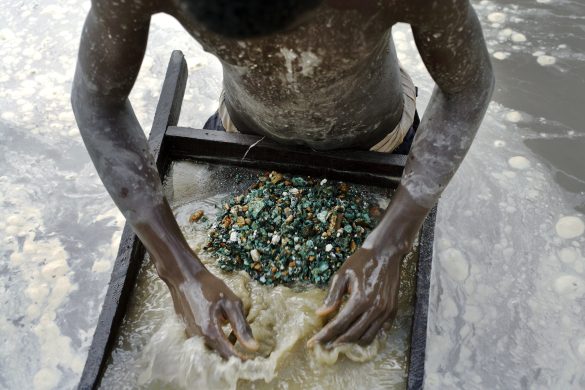|
Belgian funding channelled through the UN bodies will benefit tens of thousands at risk in the Democratic Republic of Congo KINSHASA, 20 December 2017 (FAO): Against a backdrop of intense human suffering, the Food and Agriculture Organization (FAO) and the World Food Programme (WFP) are joining forces to mitigate (lindre) some of the effects of conflict in Greater Kasai. The two United Nations agencies will be using 10 million dollar (ca. 63 mio. DKR) in Belgian government funding to improve access to food for more than 100,000 people. Some 18,000 households – whether displaced, returnee or host families – stand to benefit. The conflict in Kasai, formerly a maize-producing region, has forced a million people out of their homes and off their land. Some 3.2 million are now severely hungry. Child malnutrition is widespread. „Thanks to this significant contribution, we are able to ramp up our efforts and work closely together to prevent people, including young children, from dying of hunger and malnutrition,‟ said FAO Representative ad interim Alexis Bonte. „These interventions will not only protect vulnerable people, but help revive agricultural production and boost social cohesion in communities affected by the crisis,‟ added Claude Jibidar, WFP’s Country Representative in DR Congo. Under the project, WFP will distribute fortified maize meal, legumes, fortified vegetable oil and iodized salt – as well as cash. Children aged 6 to 59 months, and pregnant and breastfeeding women, will be treated for three months with special nutritious supplements. Vil give mad på bordet i to måneder For its part, FAO will supply vegetable-growing kits – hoe (hakker), rake (river), spade, watering can, and vegetable and fruit seeds – that will allow each family to eat for two months and sell what they don’t eat. There will be training in raising guinea pigs (marsvin) as a source of protein; and in processing and marketing bamboo to use as firewood, kitchen utensils, baskets, canoes, fishing equipment and fences. Vegetable gardens near health centres and women’s associations will meanwhile provide malnourished children, and pregnant and nursing women, with micronutrients such as iron and zinc. The joint initiative will be rolled out in partnership with the Congolese Ministry of Agriculture and local NGOs. But welcome as it is, it cannot meet anything like the full extent of humanitarian needs. The tragedy experienced by the Congolese people demands greater solidarity. FAO and WFP are advocating for significantly expanded funding to address harrowing levels of need. Above all, the two agencies are calling for a lasting peace that allows everyone to grow their own food, rebuild their livelihoods and secure a more prosperous future. Se også https://globalnyt.dk/content/kasai-congos-moerke-hjerte |
Belgiske penge sættes ind i gruopvækkende Kasai

Hedebølge i Californien. Verdens klimakrise har enorme sundhedsmæssige konsekvenser. Alligevel samtænkes Danmarks globale klima- og sundhedsindsats i alt for ringe grad, mener tre debattører.
Foto: Kevin Carter/Getty Images













